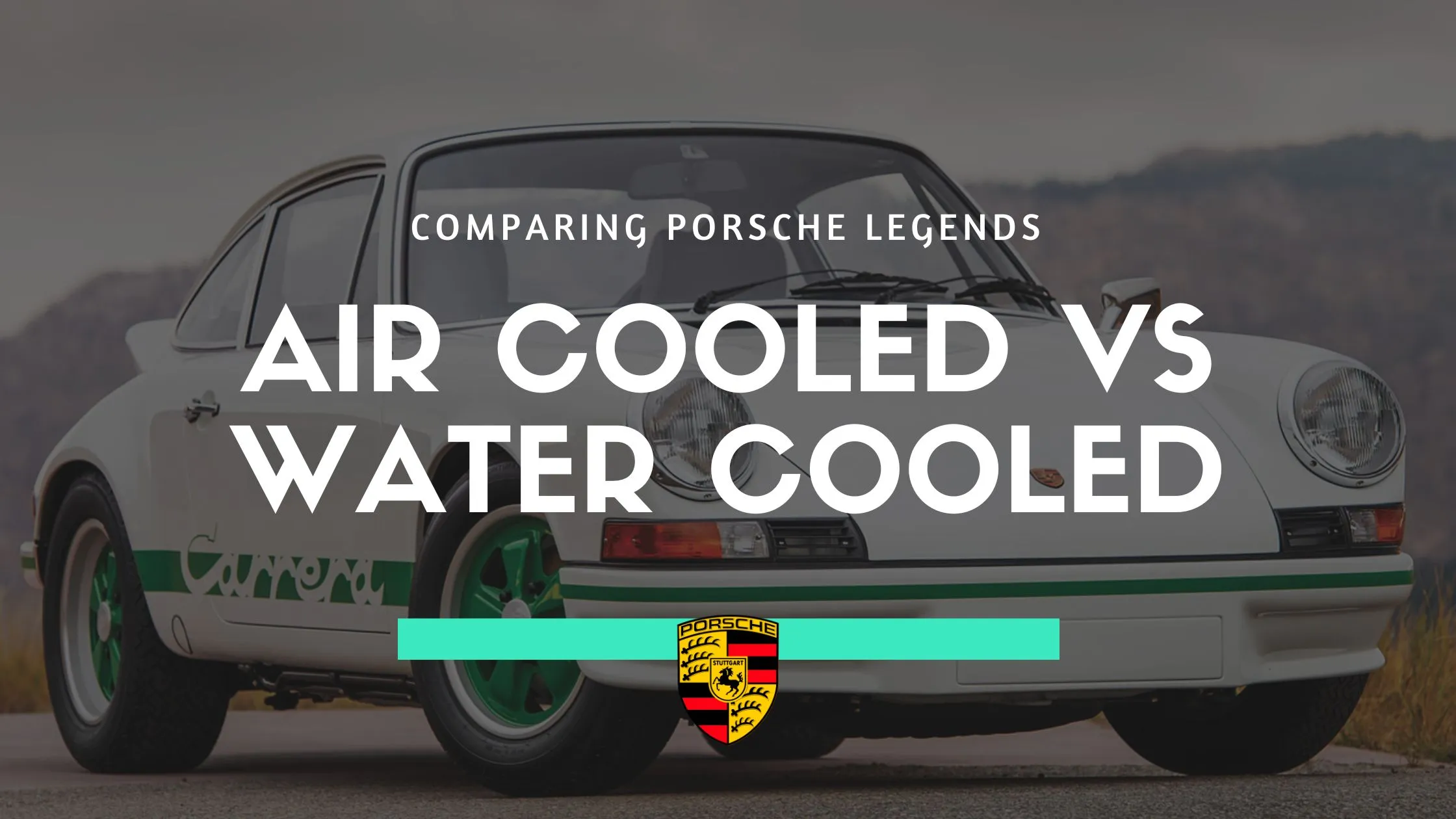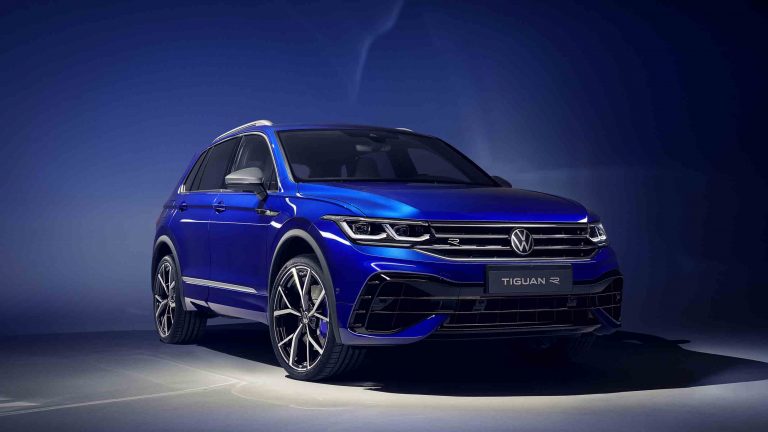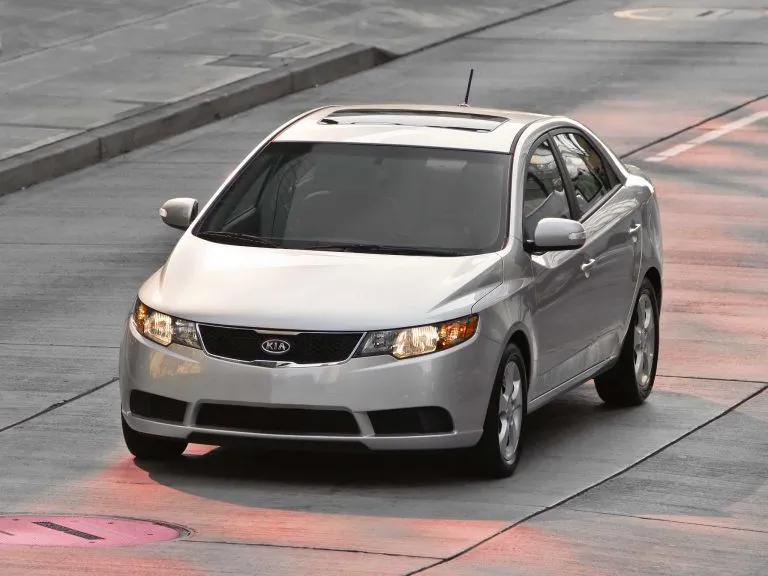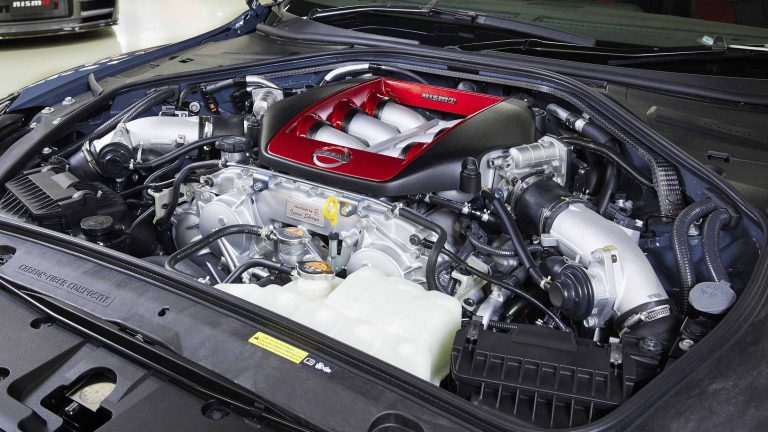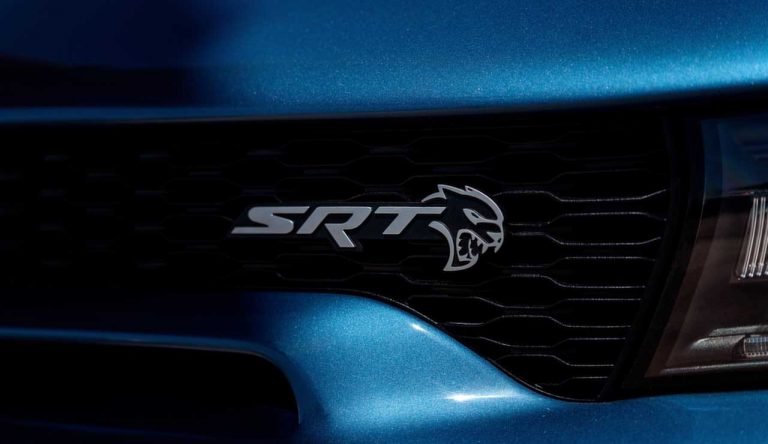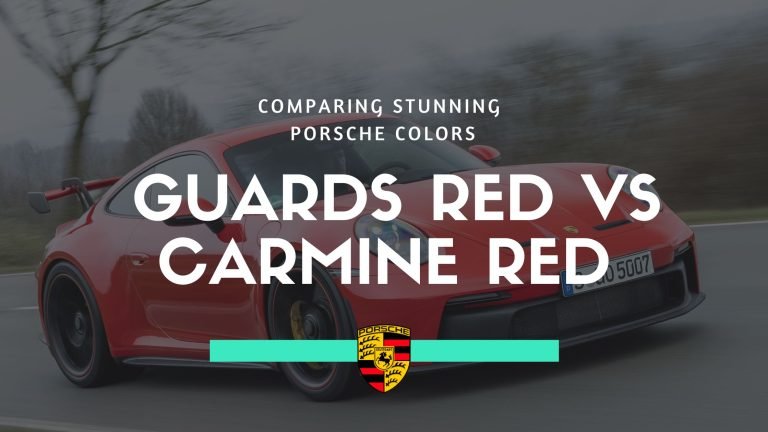Air Cooled Porsche vs Water Cooled: Comparing Porsche Legends
If you have ever driven a Porsche, you will know that they always pack a punch despite their sometimes underwhelming size.
They are punchy, powerful and tend to run a little hot from time to time! Jokes aside, in reality, every engine gets hot by virtue of being an engine, and therefore cooling an engine down becomes vitally important.
An overheating engine is prone to cracking, warping, failing, or completely degrading entirely. In comes the cooling system. But which one?
There are plenty of cooling systems, but today we are only interested in the Air Cooled Porsche vs Water Cooled discussion. How do they work, what are their pros and cons, and which is best? Well, read on ahead to find out. Let’s do it.
Highlights
- Air-cooled engines use natural/forced airflow to cool the engine, while water-cooled engines use a liquid coolant to transfer heat away from the engine.
- Air-cooled engines are simpler, lighter, and have reduced maintenance costs compared to water-cooled engines.
- Drawbacks of air-cooled engines include running hotter, decreased engine life, and increased noise.
- Water-cooled engines offer better temperature control, increased durability, and better fuel efficiency.
- Drawbacks of water-cooled engines include complexity, higher maintenance and repair costs, and susceptibility to failures like leaks.
- The choice between an Air Cooled Porsche vs Water Cooled depends on personal preference, with air-cooled Porsches being more sought after by enthusiasts, while water-cooled Porsches offer better cooling and efficiency for modern Porsche’s.
- Both have their own strengths and weaknesses, and the choice ultimately depends on individual preferences and priorities.
What Is An Air Cooled Porsche?
An air-cooled engine is a method of cooling the engine down by using natural/forced airflow over the engine’s exterior to bring its temperature down.
Unlike water-cooled engines, which use a coolant solution to continually transfer heat away from the engine, air-cooled engines rely on the natural convection of air to keep the engine at a safe operating temperature.
This simply means that as cool air flows over the engine, it absorbs the heat from the engine and carries it away, over time, this cool air replacing the hot air in contact with the engine will even cause the engine to reduce in heat itself.
In an air-cooled engine, fins or other cooling surfaces are located on the engine’s exterior to increase the surface area available for heat dissipation.
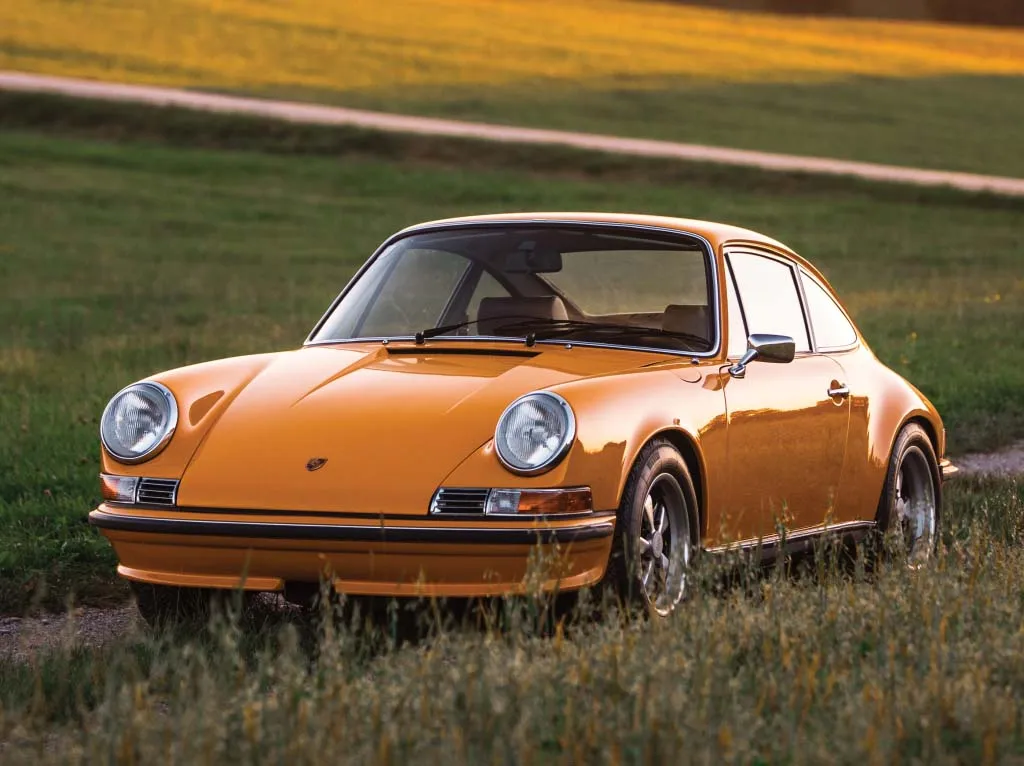
The heat generated by the engine is then radiated out into the surrounding air. The idea here is that if you can maximize the surface area of the surface areas while minimizing the overall weight of these surfaces, you can contribute to an engine that runs efficiently and cools efficiently, which in turn fuels the efficiency of how the engine is running.
That’s a mouthful, but the core concept of it is very, very similar. Here it is in a quick table for a summary:
How Air Cooled Porsche vs Water Cooled Engines Work
| Aspect | Air-Cooled | Water-Cooled |
|---|---|---|
| Cooling Mechanism | Uses natural/forced airflow over the engine’s exterior. | Uses a coolant solution to transfer heat away from the engine. |
| Convection Method | Relies on the natural convection of air. | Utilizes coolant to actively transfer heat. |
| Heat Absorption | Cool air absorbs the engine’s heat and carries it away. | Coolant absorbs the engine’s heat and is then cooled in the radiator. |
| Engine Exterior | Fins or other cooling surfaces increase surface area for heat dissipation. | Smooth exterior with coolant channels inside. |
| Efficiency Objective | Maximize surface area for heat dissipation while minimizing weight to ensure efficient running and cooling. | Efficient heat transfer through coolant circulation and radiator system. |
The Benefits Of An Air Cooled Porsche?
The benefits of an air-cooled engine largely stem from the simplicity and cost-effectiveness of the design, its lower weight, and overall reduced maintenance costs.
Because air-cooled engines don’t require a radiator, water pump, hoses, etc. – they are lighter and often even smaller than liquid-cooled engines.
Since you are utilizing an airflow that would otherwise already exist, it is simpler overall in a myriad of ways.
The Drawbacks Of An Air Cooled Porsche?
However, air-cooled engines definitely also have some drawbacks. They tend to run hotter than liquid-cooled engines, which is obviously against the whole point of air-cooling.
This can result in decreased engine life and performance, especially in extreme heat conditions like racing. Additionally, air-cooled engines can be louder and less efficient than liquid-cooled engines.
| Benefits | Drawbacks |
|---|---|
| 1. Simplicity and Cost-Effectiveness: Air-cooled engines have a straightforward design without the need for extra components like radiators or water pumps. | 1. Runs Hotter: Tend to operate at higher temperatures compared to liquid-cooled engines. |
| 2. Weight: Due to the absence of additional cooling components, they are lighter than liquid-cooled engines. | 2. Decreased Engine Life: Hotter operations can reduce the lifespan, especially under extreme conditions like racing. |
| 3. Reduced Maintenance Costs: Simpler design often means fewer parts to break or replace. | 3. Noise Level: Air-cooled engines can be louder than their liquid-cooled counterparts. |
| 4. Size: They can be more compact due to the absence of some cooling components. | 4. Efficiency: Might not be as efficient as liquid-cooled engines in certain scenarios. |
What Is a Water Cooled Porsche?
Alternatively to an air-cooled engine, you will often find that a water-cooled engine is used in its place. A water-cooled engine is an engine that uses a liquid coolant solution to transfer heat away from the engine.
In a water-cooled engine, the coolant is circulated through the engine block and cylinder head, it absorbs heat generated during the combustion process.
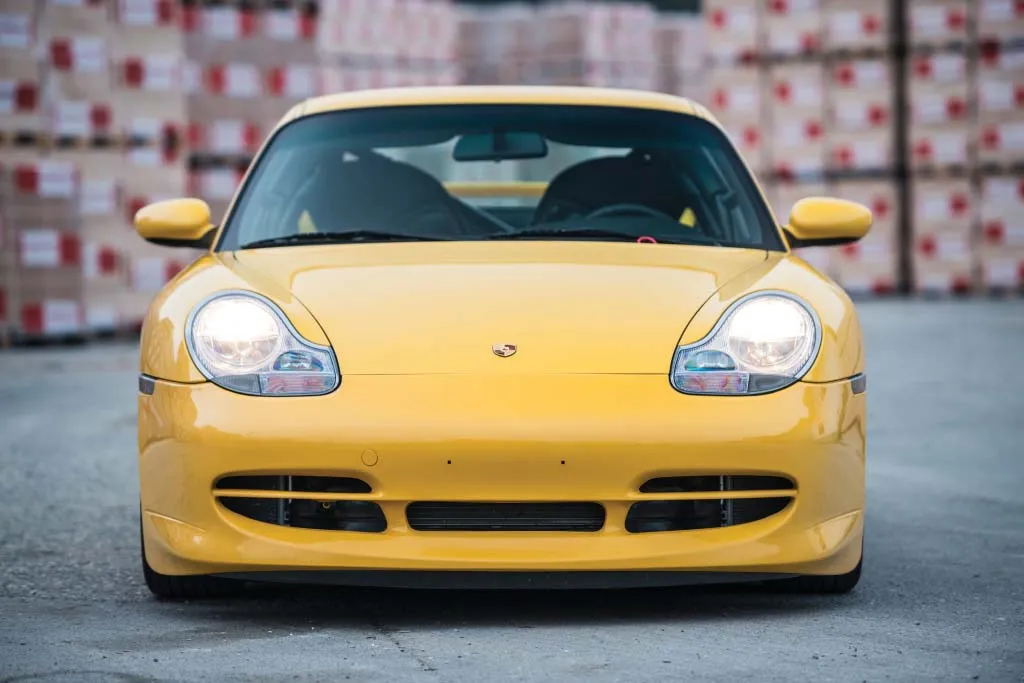
The heated coolant is then pumped out of the engine and through a radiator, where it is cooled by airflow or a separate cooling fan before being circulated back into the engine to repeat the cycle.
Because a water-cooled engine requires a radiator, pump, etc., it tends to be quite a lot bulkier and requires a different kind of maintenance, including changing engine coolant, etc.
The Benefits Of A Water Cooled Porsche?
The benefits of a water-cooled engine revolve around more effective temperature control, increased durability, and better fuel efficiency compared to other types of engine cooling.
Water-cooled engines are better at maintaining a consistent operating temperature, which will thus result in consistent engine performance.
Additionally, water-cooled engines tend to be more efficient than air-cooled engines, especially in high-demand applications, because they can transfer more heat away from the engine.
The Drawbacks Of A Water Cooled Porsche?
However, water-cooled engines can certainly also have some drawbacks. They tend to be more complex and heavier than air-cooled engines, which can lead to higher maintenance and repair costs – which is common as most water-cooled engines tend to be older.
Additionally, water-cooled engines can be more susceptible to failures, such as leaks or overheating, which isn’t as common with other types of engine cooling, such as air-cooling.
Also, again, water-cooled engines require more equipment and components to operate, radiators, water pumps, hoses, and coolant fluid, which massively increase the engine’s overall weight.
| Benefits | Drawbacks |
|---|---|
| 1. Effective Temperature Control: Water-cooled engines maintain a consistent operating temperature for stable engine performance. | 1. Complexity: They tend to be more complex than air-cooled engines, leading to potential higher maintenance and repair costs. |
| 2. Increased Durability: Better temperature management results in prolonged engine life. | 2. Weight: Due to additional cooling components, they can be heavier than air-cooled engines. |
| 3. Better Fuel Efficiency: They often have better fuel efficiency compared to air-cooled engines. | 3. Susceptibility to Failures: Prone to issues like leaks or overheating. |
| 4. Efficient Heat Transfer: Can transfer more heat away from the engine, especially in high-demand situations. | 4. More Equipment: Requires additional components such as radiators, water pumps, hoses, and coolant fluid, which can add to the engine’s weight and complexity. |
Air Cooled Porsche vs Water Cooled – Which is best?
Air-cooled Porsches, such as most 911s, has a classic design that is highly sought after by enthusiasts. Air-cooled Porsches tend to hold their value a lot better than water-cooled ones.
They are also renowned for their powerful raw sound, more fun driving experience, and simpler mechanics. Air-cooled engines have fewer parts than water-cooled engines, making maintenance much easier.
However, air-cooled engines will generally run hotter and are generally less efficient than water-cooled engines. In terms of simple effectiveness, the water-cooled engine is best.
In terms of desirability, you could argue people love the air cooled era of Porsches. But overall, there’s some epic examples of water cooled and air cooled Porsches that have astronomical prices.
Our Verdict On Air Cooled Porsche vs Water Cooled
As you can see, a large influence over which is best stems heavily from personal preference. Both air cooled Porsche vs water cooled engines genuinely have their own strengths and weaknesses.
If you want an engine that is cooled as effectively as popular, you will want to go with a water-cooled engine. But, if you want an engine that has some epic history, is a bit older, sounds rawer, but perhaps doesn’t do the job of cooling quite as well, then air-cooled is the way to go.
The air cooled Porsche vs water cooled discussion is all down to personal preference, obviously all the modern stuff is water cooled, and that’s the direction it will stay from now on, until everything gets electrified.

